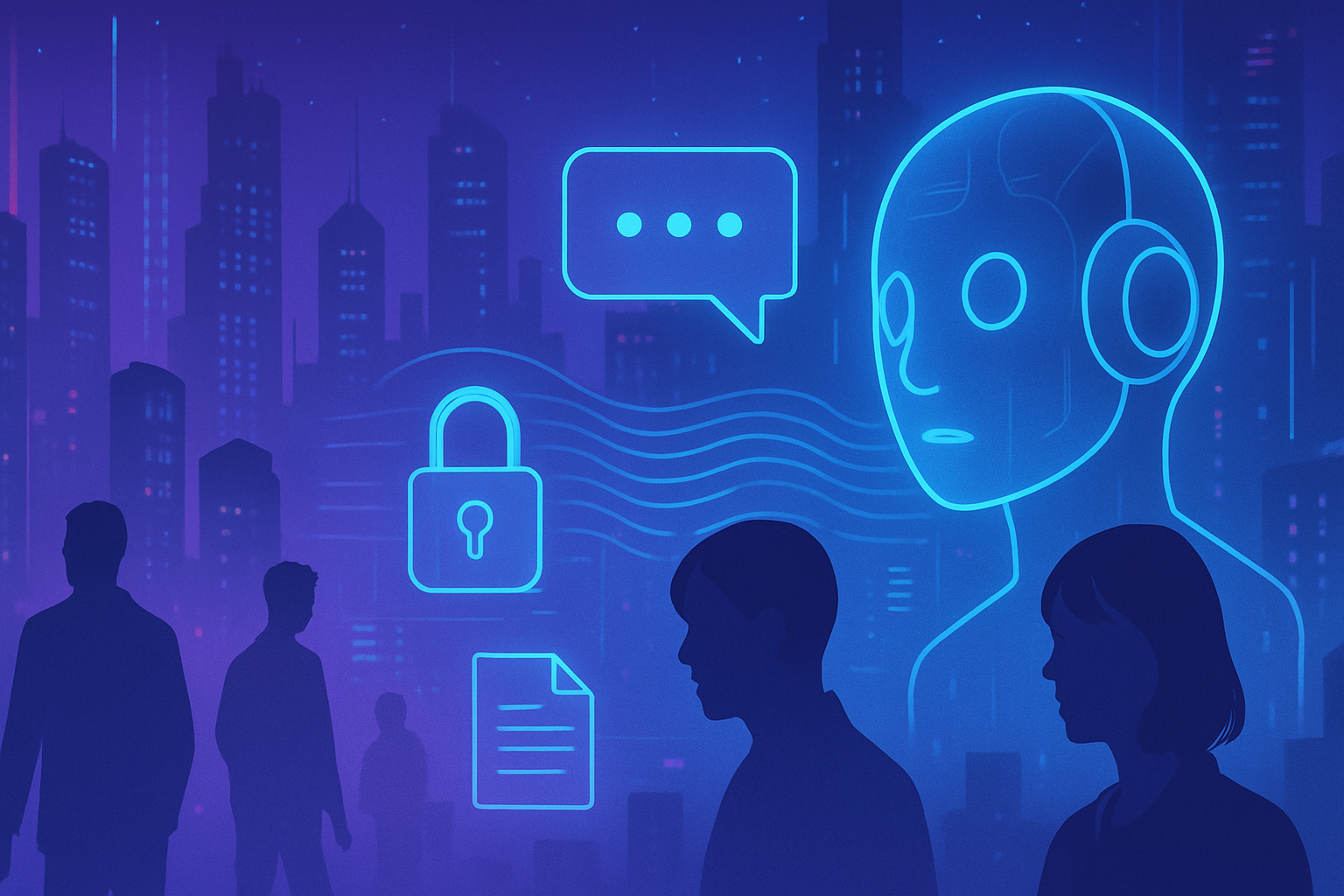AI chatbots charm users with their ability to converse with them, but this interaction raises *major concerns*. The collection of personal data for training models jeopardizes *information privacy*. Users often share sensitive data without contemplating the potential repercussions, creating a climate of insecurity. Children, in particular, are prime victims of these practices. The need for *absolute* transparency and better regulation is becoming increasingly urgent.
The use of user data by AI chatbots
Many artificial intelligence (AI) chatbots, such as Claude from Anthropic, include user conversations in their training processes by default. This practice raises growing concerns about data privacy. Users must now be vigilant, as their interactions could be used to enhance the capabilities of language models.
An alarming trend
Six major companies in the United States, like Google and Meta, have adopted similar policies. These companies use user data to optimize the performance of their chatbots. The option to refuse data usage is not systematic. Some users thus find themselves inadvertently involved in a training process that is beyond their control.
Implications for privacy
Jennifer King, an expert on privacy practices, highlights the risks associated with this trend. Personal information, even sensitive, can be collected during exchanges with AIs. Users often share information without considering the consequences, especially when discussing health or other sensitive topics.
Practices of technology companies
Research conducted by the Stanford team reveals that the privacy policies of AI developers are rarely transparent. Data retention periods can be indefinite, and information about children is sometimes also collected. The complexity of regulations and the lack of a consistent federal law complicate the protection of personal data.
Cross-referenced data and lack of consent
Companies like Google, Meta, and Microsoft often amalgamate user interactions with other data collected across their various platforms. For instance, a user expressing a need for healthy recipes could, unknowingly, be categorized as a high-risk individual, significantly affecting their online experience.
Interactions are not limited to simple conversations. Companies exploit this data within a broader ecosystem, leading to direct effects on users’ privacy, such as massive advertising surveillance.
Recommendations for protecting privacy
In light of these issues, several experts advocate for the creation of a federal regulation on data privacy. Companies should provide users with an affirmative choice for sharing their individual data at the time of training models. Filtering personal information from conversations by default could become an essential standard.
The challenges of protecting children’s privacy
The issue of data collection for underage users also deserves special attention. Practices vary considerably, and few measures account for the consent required for children. Policies do not seem aligned with modern concerns regarding the data security of the youngest users.
Staying vigilant remains essential for users, particularly against digital chocolatiers. Privacy protection must become a priority to balance technological innovation with respect for personal life.
Reflections on the future of data privacy in AI
In the future, discussions around privacy and artificial intelligence should play a central role in the policies of technology companies. The significance of clear legislative oversight cannot be understated. Users must be aware of the implications of their interactions with AI systems. Research on the impact of these technologies on privacy is also vital for navigating this new digital environment safely.
Common FAQs about the use of user conversations by AI chatbots and privacy
Do AI chatbots use my conversations for training by default?
Yes, many AI chatbots, including Claude from Anthropic, utilize user conversations to train their models unless the user opts out of this practice.
How are my personal data used during interactions with an AI chatbot?
The data you provide can be collected, stored, and used to improve the chatbot’s performance and the underlying models. This also includes profiling based on your responses.
Can I refuse to have my data used for model training?
Yes, some platforms offer the option to opt out of data usage for training. It is important to check the privacy settings of the platform you are using.
What is the retention period for my data by AI chatbot developers?
Retention periods vary by companies, but some may retain your data indefinitely, raising concerns about privacy protection.
Do AI chatbots ensure that my data will be anonymized before being used for training?
While some companies claim to anonymize data, others do not adopt this practice and retain personal information in identifiable form.
What precautions can users take to protect their privacy when using AI chatbots?
To protect your privacy, avoid sharing sensitive or personal information and consult the privacy policies of the platforms for their data practices.
What are the implications of sharing sensitive information with an AI chatbot?
Sharing sensitive information can expose users to various risks, including data collection for targeted advertising or unauthorized disclosure to third parties, such as insurance companies.
Do AI chatbots comply with specific regulations on personal data protection?
Compliance with data protection laws, like the GDPR in Europe, depends on the individual practices of each company. It is crucial to review the policies of each platform to understand their commitments.
Should parents be concerned about data collection from children by AI chatbots?
Yes, data collection from children raises concerns, as practices vary across companies and many platforms do not take sufficient measures to protect minors’ data.






